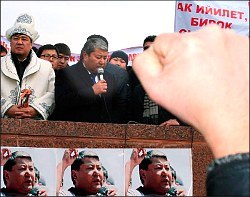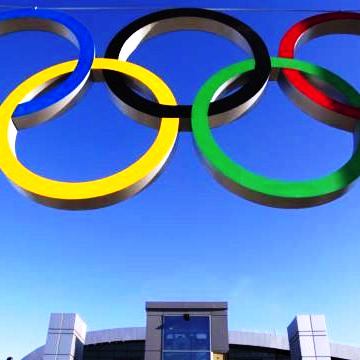This is a brief note on the mayoral elections in Bishkek and Osh. Both cities now have new mayors. Replaced were Bishkek’s hugely unpopular Isa Omurkukov and Osh’s enormously problematic Melis Myrzakmatov.
Mayoral seats have never been much contested at the voting stage in the past. Elections often reflected decisions already taken by the country’s key executives. This time expectations were different.
To begin with, Osh’s former mayor Myrzakmatov became an unusual example of an official who claimed to be more powerful in the city than the national authorities. He demonstrated impressive survival skills as he managed to retain his seat after the events of April and June 2010, despite the efforts of the national government to unseat him. Moreover, he often felt bold enough to openly articulate messages that many found nationalist or separatist.
In the latest city council elections, held in 2012, we saw for the first time many parties entering the council thus creating an opportunity for groups to play coalition-building games. Given that mayors play an important role in the distribution of a city’s economic and political resources, parties were incentivized to be active.
The new Bishkek mayor, Kubanychbek Kulmatov, was the head of the State Customs Service. He was nominated by the Social Democratic Party of President Almazbek Atambaev and found support from all other parties in the city. Whether this reflected excellent negotiations by the Social Democrats or was based on Kulmatov’s charisma is not certain, but he received 41 votes out of 45 in elections that can actually be described as rather unexciting.
The Osh elections had more anxiety. The new mayor, Aitmamat Kadyrbaev, was not widely known to the public. He was the nominee of several parties: Social Democrats, Respublika, Zamandash, and other smaller parties. He defeated Myrzakmatov 25 votes to 19. Myrzakmatov, the self-declared “khozyain” of Osh, looked bitter given that he failed to receive support from all 21 members of his own Uluttar Birimdigi party, which controlled the 45-member city council. There were some initial protests resulting in several inured police officers, but few people now expect such protests in Osh to continue or spread.
In reality, Myrzakmatov’s ouster means little in terms of the struggle of political ideologies in the country. Despite much media noise, he was not very different from other “heavyweights” in the intersection of politics and business in terms of his views on political or economic development. But he turned out to be a mayor who saw his local support (combination of popularity and control over businesses and sports clubs) sufficient to play directly against the national government. This was likely his survival and defense strategy, an approach that was not risk-free.
Now that these events have passed, media attention in Kyrgyzstan will turn back to the latest round of Kyrgyz-Tajik tensions in the southern Batken oblast, which unexpectedly turned out to be something beyond the usual, involving troops firing at each other and an absolute lack of mutually shared narratives in both Bishkek and Dushanbe of what and how those exchanges of bullets happened.











